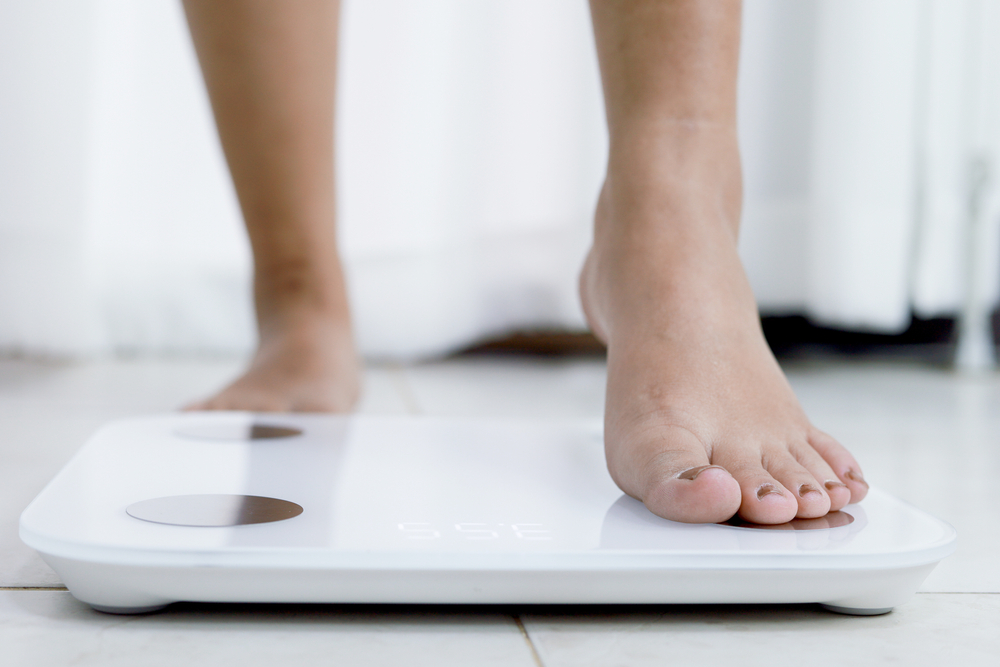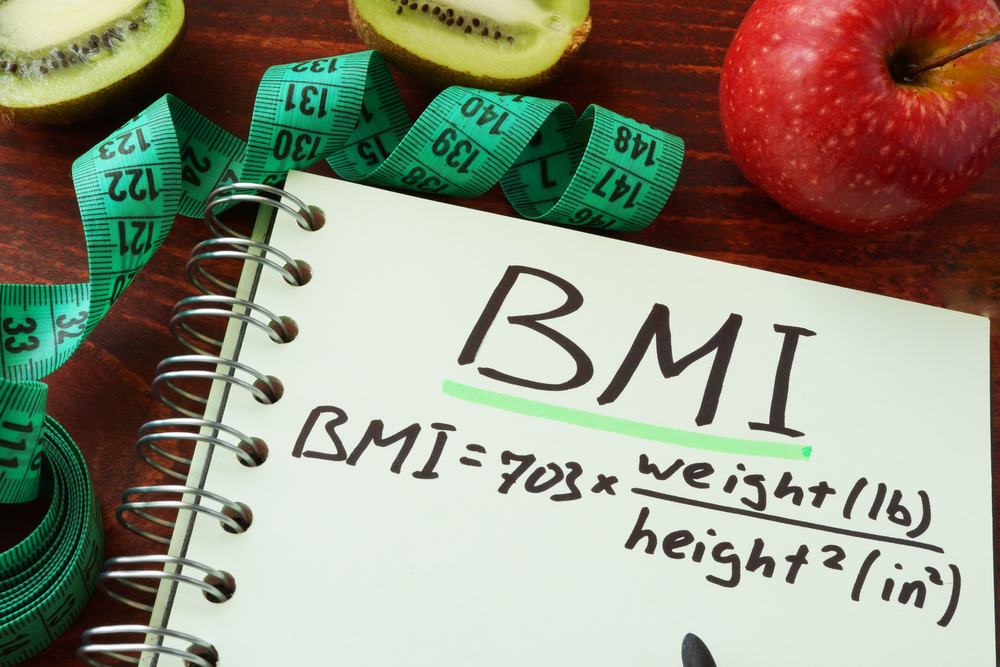If you hope to lose weight and overhaul your health, a growing number of experts suggest you step away from the scales and look to your metabolic fitness for answers. Sarah Sellens explores what your metabolic age is, how it’s calculated, and how to reduce it to improve your health…
This year more than ever, there’s a huge impetus to get slim. This is thanks to reports showing that being of a healthy weight could be key to surviving Covid-19. But if you want to stay sufficiently motivated to slim down, it’s not enough to say: “I want to lose weight”. “I want to be healthy” is a far more powerful sentiment. Enter your metabolic age.
What is metabolic age?
So, what actually is your metabolic age? Based on your Basal Metabolic Rate (BMR, or the number of calories your body burns at rest) compared to the BMR average of other people of the same chronological age, your metabolic age is a good indicator of how fit, healthy and strong you are.
Although your BMR has a direct impact on your weight – the higher your BMR, the greater your calorie-burning power – your metabolic age reveals more about your health than a number on the scales.
‘Ageing and lifespan are strongly affected by metabolism,’ explains Hannah Braye, nutritional therapist at Bio-Kult. ‘In fact, metabolic processes support many bodily systems. This includes brain and heart function, immune cells, and tissue repair, among others.’
While the pandemic has caused us to focus on the implications chronological age has on health, metabolic age may provide a better gauge of wellbeing. ‘Two people of the same age could have a completely different metabolic age, depending on their dietary and exercise habits,’ reveals Lyndsey Forfar, head trainer at f45 Vauxhall.
‘Someone who has lived a healthy lifestyle will have a higher BMR and, in turn, a lower metabolic age than someone who has led a more sedentary lifestyle.’ The take-home message? It’s important to learn how to improve and lower your metabolic age to remain healthy as you get older.

How is metabolic age calculated?
Fortunately, there’s a way to estimate your BMR. For women, the way to calculate metabolic age is: 655.1 + (9.563 x weight in kg) + (1.850 x height in cm) – (4.676 x age). ‘Once calculated, your BMR can be compared to the average BMR for people of the same age as you. This means you can then work out your metabolic age,’ adds Andy Hawkey, associate professor of Sport and Science and Human Performance at Solent University. ‘The general concept is that if your metabolic age is lower than your chronological age then you are deemed to be healthy.’
Sound complicated? Good news – there is an easier way to suss out your stats. Some body composition analysers will provide details of your BMR and metabolic age, as well as other handy readings such as how much visceral fat you have. This can paint a better picture of health, suggests Prof Hawkey:
‘It’s necessary to factor in things such as body composition (our make-up of fat and lean tissue), waist circumference, blood pressure, and our ability to utilise oxygen efficiently,’ he explains. ‘Metabolic age doesn’t allow for differences in body composition. However, it can be useful in helping us understand how we “measure up” and giving us a kick-start to a healthier lifestyle.’

How to reduce your metabolic age
Now you know your metabolic age, we bet some readers are wondering how to lower it so you can improve your health and fitness. While some folk may be able to knock a decade off their chronological age through measuring their BMR, if your metabolic age is higher than your years, you may feel quite deflated. Luckily, our panel of experts has uncovered plenty of things you can do to reduce metabolic age and improve your health. Here’s how to reduce, lower and improve your metabolic age…
1. Move more every day
Exercise doesn’t only burn calories when you’re moving, it also boosts your BMR by burning calories at rest. But how much activity should you do? ‘According to research, which is supported by the British Association of Sport and Exercise Sciences (BASES) and the American College of Sports Medicine (ACSM), we should be aiming for 30 minutes of moderate-intensity exercise, five days a week,’ says Prof Hawkey.
This doesn’t have to be achieved through scheduled workouts: taking the stairs, standing at your desk – little things help. ‘Sitting down for extended periods can have a negative impact on blood glucose and insulin levels. These are both metabolic risk factors.’
2. Lower your metabolic age with resistance training
Quick science lesson: the more muscle mass you have, the more calories you’ll burn at rest. This will increase your BMR and lower your metabolic age. How do you get more muscle mass? Weightlifting.
‘Resistance training is also important for bone density and maintaining muscle mass, as we naturally lose muscle mass as we get older,’ says Forfar. ‘Try adding 1-2 resistance training sessions into your week to improve your strength.’

3. Prioritise sleep to reduce your metabolic age
Make sleep a priority, as a lack of Zzz’s can slow your metabolism down. ‘Research has shown that sleep plays a crucial role in metabolism. Getting a good night’s sleep can help you maintain a healthy weight,’ adds Prof Hawkey. ‘Have a consistent sleep/wake regime by avoiding blue light and reducing caffeine [before bed].’
4. Improve your metabolic age through your gut
We’re only just starting to realise how our gut health impacts our metabolic health. However, a growing body of evidence is showing that the gut microbiota (microorganisms in our gastrointestinal tract) can play a role in obesity and other metabolic disorders.
‘Many age-related conditions are [also] associated with imbalances of the microbiota and the gut-associated immune system,’ explains Braye, ‘Supporting the health of the gut by taking a multi-strain live bacteria supplement such as Bio-Kult Advanced (RRP £9.48, www.bio-kult.com) can help.’
5. Try intermittent fasting to lower your metabolic age
A good diet is pivotal for a healthy metabolic age. So, skip processed fodder, reduce portion size and opt for lean protein as well as whole carbohydrates. Research shows that intermittent fasting (IF) can also boost metabolic activity and help to fight ageing.
‘It is also thought to modulate a cellular spring-cleaning process known as ‘autophagy’, where old, damaged cells are broken down and recycled by the body into better functioning new cells,’ adds Braye. ‘This process is thought to be an important aspect for mitochondrial health (the part of the cell where we produce energy) and therefore healthy metabolic ageing.’







